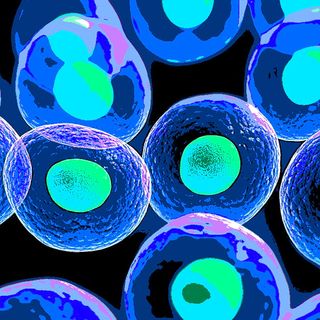
Strenuous Exercise Boosts Your Immune System
Your body may benefit even when you think you’ve overdone it.

The belief that strenuous exercise can suppress the body’s immunity has been turned on its head; a new analysis has found extreme exercise might even give you an edge in fighting infections.
In the 1980s, a study of the Los Angeles Marathon found that many competitors showed symptoms of infections in the days and weeks that followed the race, leading to a widespread belief that heavy exertion could lead to weakened immune systems.
But in a new study published in the journal Frontiers in Immunology, researchers from the University of Bath are reexamining and reinterpreting scientific findings to conclude that extreme exercise has quite the opposite reaction to what was previously believed: Exercise, even extreme exertion, may instead boost immune health.
Exercise causes immune cells to change in two ways, the authors explain. Initially, during the activity or exercise, immune cell counts in the bloodstream can rise dramatically, by up to 10 times, especially ‘natural killer cells,’ which are responsible for dealing with infections. Once the exercise is over, the amount of some types of immune cells in the bloodstream decreases substantially, reaching levels lower than pre-exercise counts. This phenomenon can last for up to several hours.
Previously, scientists took this drop in immune cells post-exercise to be evidence of immune suppression. However, there is strong evidence today that the immune cells have not been destroyed or lost during exercise, but rather they have migrated from the bloodstream to other regions of the body, parts that are more likely to get infected, such as the lungs.
The researchers believe these cells are not destroyed for three reasons.
First, they found evidence that immune cell levels returned to normal with a few hours — too quick for any missing cells to have been replaced with new ones. Second, over the years, studies have shown that immune cells are capable of leaving the bloodstream and travelling to other sites in the body. And third, studies conducted with laboratory animals have shown that, following exercise, immune cells preemptively accumulate in lungs and other infection-prone parts of the body.
“It is increasingly clear that changes happening to your immune system after a strenuous bout of exercise do not leave your body immune-suppressed,” explains John Campbell from the University’s department for health. “In fact, evidence now suggests that your immune system is boosted after exercise — for example we know that exercise can improve your immune response to a flu jab.”
The authors concede that while strenuous exercising does not directly increase the chances of catching an infection, other, related factors might explain the findings from the Los Angeles Marathon study. Attending an event that attracts large crowds by itself exposes people to a multitude of possible infections, they said. Another factor involves travel, where public transport, especially air travel leads to disrupted sleeping, thus leaving you in a weakened state. Other factors include an inadequate diet, psychological stress, and other changes, may be a great cause of developing these infections.
Regardless, exercise plays too important a role in reducing the risk of developing cardiovascular disease, cancer and type II diabetes, says co-arthur James Turner, to be avoided. He encourages people to not put off exercise for fear of coming down with a cold, the flu or other complaint
Angelina Shah is a staff writer with The Swaddle. In her previous life she was a copywriter in advertising. She has a penchant for reading, singing, travelling and being obsessed with superheroes.
Related


For Healthy Food Habits in Adulthood, Teach Kids to Cook
